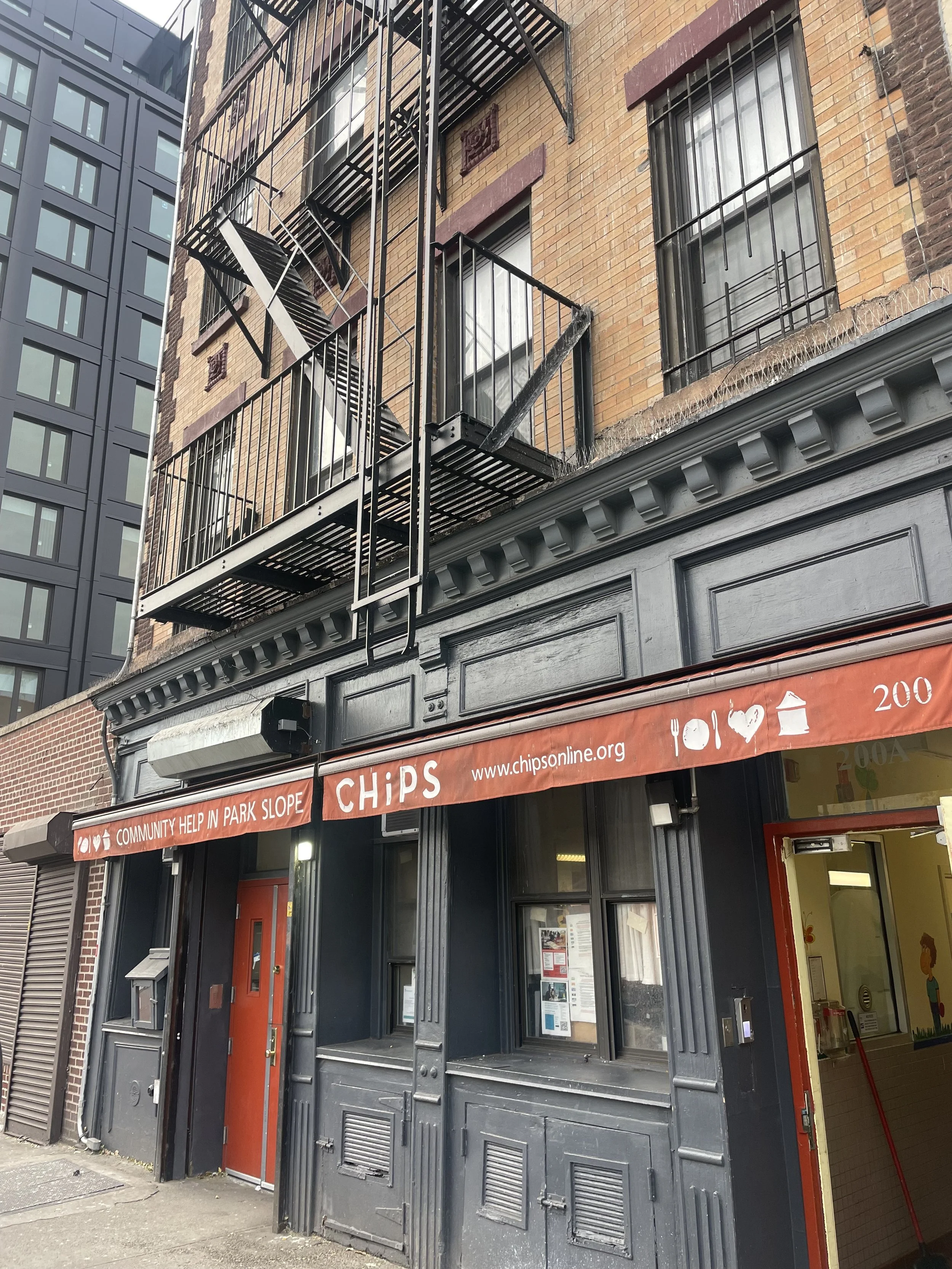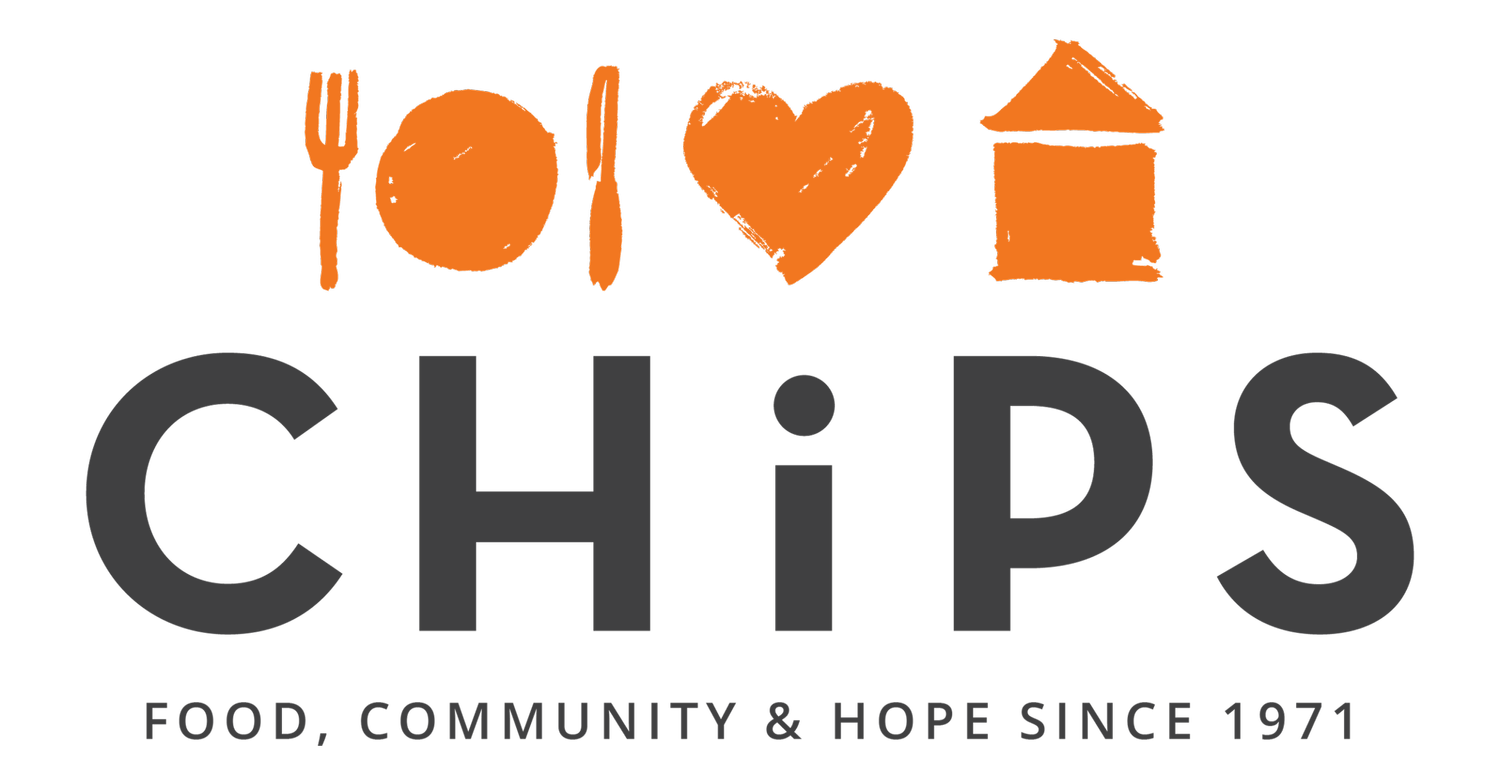
About
Community Help in Park Slope
A Mission Over 5 Decades Strong
Founded over 50 years ago, CHiPS is a community meal provider, food pantry, and shelter for women with young children. Our building is on 4th Avenue, right between Park Slope and Gowanus in Brooklyn.
Our mission is twofold: to ameliorate food insecurity and homelessness in New York City. With our community meals and food pantry programs open six days a week, CHiPS serves as a beacon of hope to thousands of our friends and neighbors in need, and our success comes from people like you. Our supporters and volunteers keep the doors open, the meals hot, and the food plenty.
Our History
The CHiPS building was built in the late 1800’s. In 2004, the Groundswell Mural Organization commissioned a mural on the building’s south side. “I Deal, I Dream, I Do” was painted by a team of female artists.
CHiPS was founded in 1971 by members of the St. Francis Xavier Church, who were inspired by the spirit of the Vatican II Council and the Biblical story of the Good Samaritan. It was the first Catholic, non-profit agency for those experiencing homelessness and food insecurity in Park Slope. In its first few years, CHiPS offered free coffee, sandwiches, medical consultations, and legal assistance every evening out of a small Park Slope storefront.
In 1976, CHiPS moved its operations to our current four-story brownstone located at 200 Fourth Avenue and began to build out its services. Once the facility was outfitted with community donations and painted by volunteers, CHiPS began operating full-time, providing healthy, hot meals to anyone who came through the doors. An early ally, the Park Slope Food Co-op was one of the first local grocery stores to donate food regularly. CHiPS now receives regular donations from around [insert estimated number] businesses in the area. As the hours of service expanded, CHiPS turned to groups like the NYC Food Bank, United Way of NYC, and the Federal Emergency Management Agency (FEMA) for increased support and funding.
In the 1980s, the soup kitchen was staffed entirely by volunteers. The Franciscan Sisters of the Poor were active in their volunteer duties, and Sister Pauline and Sister Mary were both instrumental in managing the kitchen in its early days. By the mid-1980s, the soup kitchen was feeding upwards of 150 people each day. Around this time, CHiPS joined the Partnership for the Homeless and hosted 12 to 14 houseless individuals each night, transforming the dining room into a place to sleep by replacing fold-up tables and seats with cots.
In 1988, CHiPS was awarded a grant for the purchase of the brownstone it had then been operating out of for 17 years. Local Councilman and current City Comptroller Brad Lander was instrumental in obtaining the grant. Roughly ten years later, the Franciscan Sisters of the Poor started the Frances Residence. Named after their founder, Mother Frances Schervier, the Frances Residence is a private temporary residence program for mothers and their infants and toddlers in need of shelter and support services. This marked the shift from providing short-term housing for homeless men to our current focus on facilitating independence in young women facing housing insecurity.
Today, CHiPS still values and relies on the support from all of our volunteers. With a food justice focus, we address symptoms of health and income inequality facing the Brooklyn community and single mothers by breaking down barriers to healthy living for BIPOC in order to dismantle systemic oppression.
Get Involved
Volunteer
Help CHiPS provide our guests with daily meals and other services. We cannot feed hungry folks without your support!
Resource Drives
We are always in need of community volunteers to support our kitchen and food pantry through off-site projects!
Food Rescue
Rescue food from a growing number of businesses that would otherwise be thrown away.
Donate
Every dollar donated helps CHiPS provide hot meals, pantry bags, and shelter services.
Ways to Give
Donor Advised Funds
Check out our page on donor advised funds and make a donation through our new DAFpay feature, which allows you to donate from a Donor Advised Fund in just three steps.
Employer Gift Matching
Double your donation and see if your employer will match your donation.
In-Kind Donations
Check out the list of specific needs for CHiPS on our Amazon Wishlists and the list of things our community meals program and women’s shelter always need.


